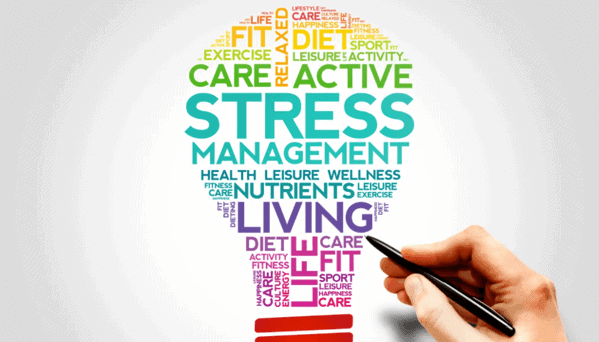Reprinted with Permission from Author: Stephanie Reilly, MSW, LCSW
Autumn has swept in with changing leaves and a crispness in the air. Whether or not you are a fan of the cooler temperatures, you may be feeling stressed lately. It could be fewer hours of day light, a busy schedule, or challenging demands. Whatever the reason, stress can take a physical and emotional toll. It can reduce the body’s ability to fight off illness, increase blood pressure, interfere with sleep, and trigger anxiety, depression and other emotional issues. Keep reading for six ways you can take action to manage your feelings of stress and lessen its impact.
1) REEVALUATE We are often doing so much and going through that To-Do List so fast that our trusty list has become a waste basket for every little thing. Taking a moment to determine what actually needs to be done can save a lot of time overall. What is most important? Don’t confuse importance with urgency. Are you working to fit in items that persist from a previous list, but have lost their importance? Consider your reasons for each item. Are there any that can be handled by someone else or are actually not your responsibility? Keep your objectives in mind.
2) BOUNDARY SETTING Taking on responsibilities for others can become a habit we learn over time. When we are feeling overwhelmed by stress it becomes especially important to ask Whose priority is this? Learning to say “No” is crucial to reducing stress. Communicate clearly when you are not able to agree to something. If it helps, practice your response to requests ahead of time so you are prepared.
3) PROBLEM SOLVING IN PLACE OF RUMINATION When we think about the same issue over and over, that is called rumination. Rumination is rarely productive, and instead is a sign that we are stuck in a rut. Rumination is associated with anxiety and depression. When you catch yourself ruminating over what needs to be done, or how you are feeling about it, try replacing the thoughts with something more productive or helpful. Ask yourself, as I think about this am I problem-solving or being productive? If not, shift your thinking to solving a specific problem with specific steps, or refocus your attention to something that is healthier for you – maybe the next item on your list or taking in a beautiful sunset.
4) TAKE CARE OF YOUR BODY Stress can be felt physically and approaching it in a physical way can be helpful. Walking, jogging, and other forms of aerobic exercise can be very useful in stress management. Yoga has been shown to be an effective tool to manage stress. Progressive Muscle Relaxation (PMR) is a practice that involves tensing and relaxing muscles in the body for an overall very relaxing effect. (Instructions can be found online in written and video formats.) Allow yourself to make the time, and find something that fits into your lifestyle.
5) BREATHE Intentional breathing is stress-reducing on multiple levels. It refocuses your thinking, increases your oxygen intake, and helps to clear your mind. There is more than one way to practice intentional breathing and it is worth it to find one or two styles that work for you. Try this: Breathe in fully through your nostrils (at a normal pace) and then breathe out slowly through your pursed lips (think: blowing out a candle) as you count backwards from ten. You won’t reach zero, but it will be a reminder to breathe out slowly. Extend your exhale, not your inhale.
6) SOCIALIZE Make time to stay connected, reconnect, or make new connections with loved ones, friends, and communities. We are built to be social and it can make a big difference in how we feel. Reach out to others to share when you are feeling stressed, or to talk about something else, which will help to take your mind off your problems and open your perspective. Stay engaged with your communities – they are all around you – they include groups like your neighborhood, local municipality, place of worship, or your department at work.
If you are finding that you continue to feel overwhelmed, or your stress seems to involve anxiety, depression, or other emotional struggles, consider scheduling an appointment with a professional therapist or counselor.

